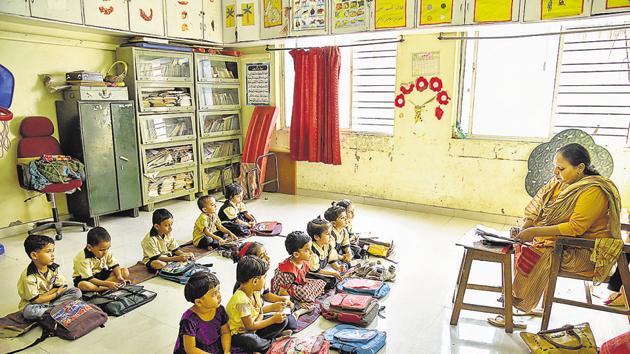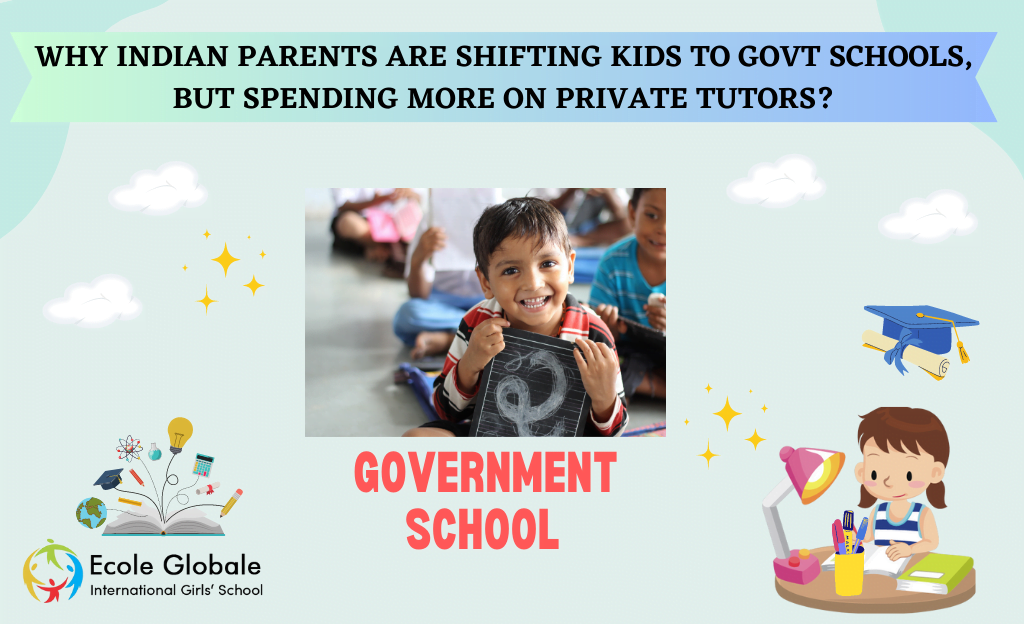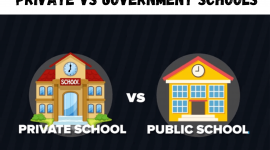In recent years, there has been a noticeable trend in India where parents are increasingly opting to send their children to government schools rather than private schools. This shift can be attributed to various factors, such as the cost-effectiveness of government schools, improved quality of education, and better availability of infrastructure.
However, despite this shift, there has been a simultaneous increase in the hiring of private tutors for their children. This trend raises important questions about the impact on the education system, the financial burden on parents, and the quality of education. In this blog, we will explore this trend in detail, its impact, and the challenges it poses. We will also discuss the need to address this issue and its significance for the future of education in India.
Why Indian Parents are Choosing Government Schools for Their Kids?

According to the Boarding schools in India, A major reason for the trend of parents shifting their children from private to government schools in India is cost-effectiveness. Government schools generally have lower fees compared to private schools, which makes them a more affordable option for many families. Additionally, government schools also offer free education to children from economically weaker sections of society.
Another reason for the shift to government schools is the improved quality of education. In recent years, the government has taken several steps to improve the quality of education in government schools, including providing better infrastructure and facilities, hiring trained teachers, and implementing innovative teaching methods. This has resulted in a significant improvement in the quality of education offered by government schools, making them a viable option for parents who are seeking quality education for their children.
Lastly, the availability of infrastructure is also a factor that is contributing to the trend of parents shifting their children to government schools. In many areas, government schools have better infrastructure, including facilities such as playgrounds, libraries, and computer labs, which are often lacking in private schools. This makes government schools an attractive option for parents who are looking for schools that provide a well-rounded education for their children.
The Rise of Private Tutors in India’s Education System

Despite the trend of parents shifting their children to government schools, there has also been an increase in the hiring of private tutors. One reason for this trend is the reinforcement of learning. Private tutors can provide additional support to students, helping them to better understand and reinforce the concepts learned in school. This can be especially helpful for students who struggle with certain subjects or who need additional attention to perform well in their exams.
Another reason for the rise in private tutoring is personalized attention. With private tutors, students can receive one-on-one attention, which is often lacking in a classroom setting. This can help students better understand and master the concepts being taught and can also improve their overall academic performance.
Lastly, many parents hire private tutors to help their children prepare for competitive exams. In India, competitive exams such as the Joint Entrance Examination (JEE) and the National Eligibility cum Entrance Test (NEET) are highly competitive and can determine a student’s future academic and career prospects. Private tutors can provide specialized coaching to help students prepare for these exams, improving their chances of success.
Impact of the Trend: How It’s Shaping the Future

As per research conducted by Schools in India, The trend of parents shifting their children to government schools while hiring private tutors in India has led to some significant consequences for the education system in the country. One of these consequences is that the parents are now burdened with additional financial expenses in the form of private tuition fees, which are not affordable for some families. Consequently, this has created inequality in the education system where only wealthy families can provide their children with the best possible education through private tutors.
Another consequence of this trend is that it has led to the perception of a quality gap in education between government and private schools. This perception can result in an uneven distribution of resources and funding between the two types of schools, further aggravating the disparity in education quality. Moreover, this trend could influence the education system as a whole, leading to increased competition between government and private schools, which could result in more innovation and improvements in the education system. However, it could also widen the divide between those who can afford private tutoring and those who cannot.
What Can Be Done?

To combat the challenges presented by the trend of shifting children from private schools to government schools in India while simultaneously hiring private tutors, several measures can be implemented. Firstly, the quality of education provided by government schools must be improved, including the infrastructure, teaching methods, and curricula. This can be achieved through increased funding and a better allocation of resources. Collaborating with experts and organizations can help implement best practices in the education system.
Secondly, it is vital to offer support and training to teachers to enhance their teaching methods and skills, leading to better learning outcomes for students. Government-led programs and partnerships with private organizations and experts can provide access to resources and training. These efforts will lead to a better educational experience for students in government schools.
Conclusion
The trend of shifting children from private to government schools in India while simultaneously hiring private tutors has several implications for the education system and the future of the country. To address the challenges presented by this trend, it is essential to improve the quality of government schools, provide support and training for teachers, and promote collaboration between government and private tutors.
These measures require a collaborative effort from the government, private organizations, and experts and are crucial steps in creating a more equitable and inclusive education system in India. Taking action now will ensure a brighter future for the next generation and the country as a whole.







